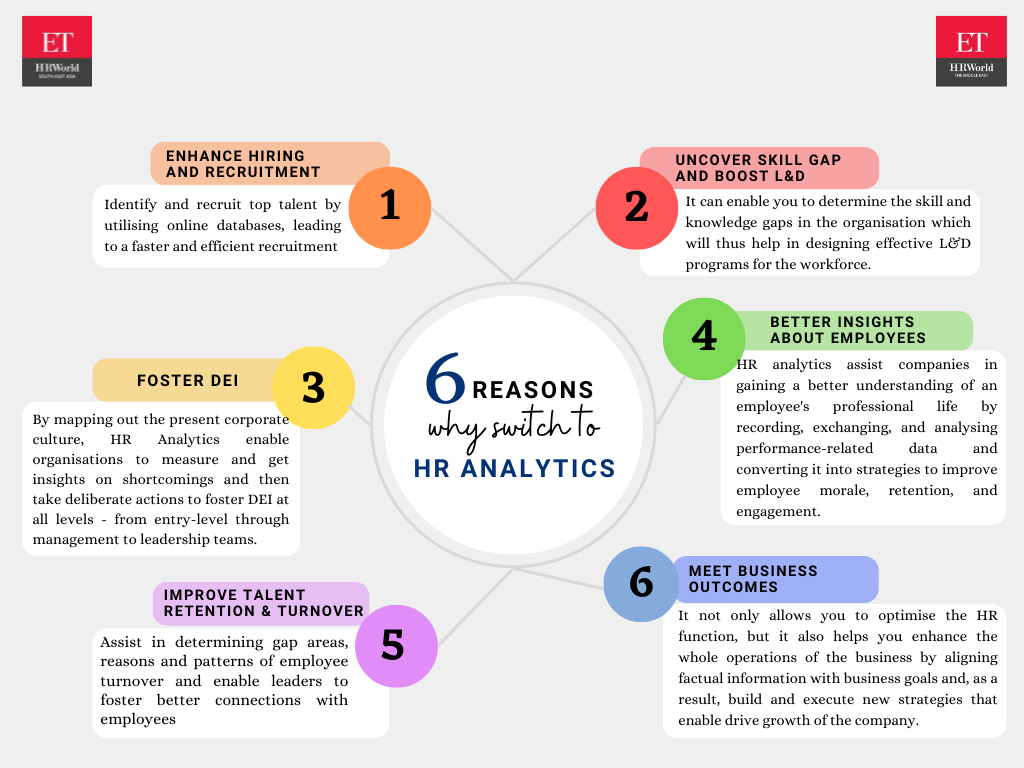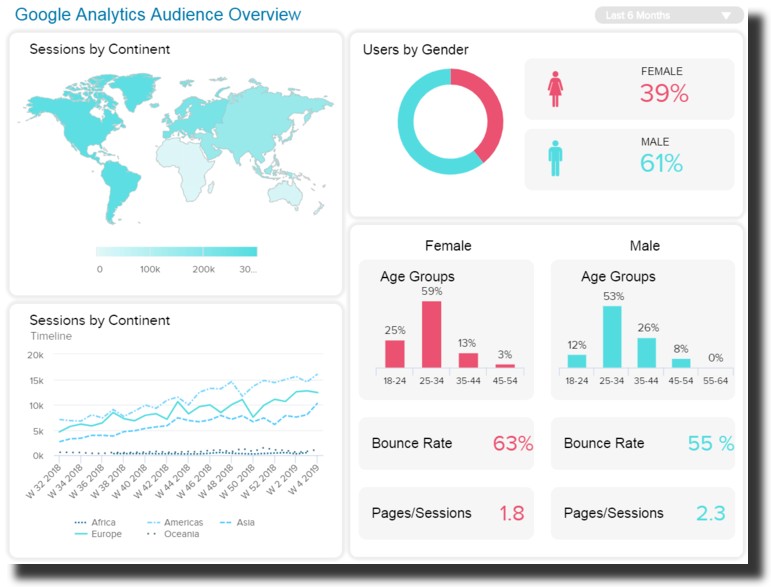Enhance Business Processes Utilizing Comprehensive Analytics Records
Enhance Business Processes Utilizing Comprehensive Analytics Records
Blog Article
Optimize Development: How Analytics Drive Better Techniques
By using data insights, services can improve their functional strategies, anticipate market modifications, and improve consumer involvement. The obstacle exists not only in gathering data yet in efficiently translating it to drive substantial end results.
Recognizing Data Analytics
Data analytics is a systematic computational analysis of data that allows organizations to uncover meaningful patterns and insights. This process encompasses a range of strategies, consisting of analytical evaluation, anticipating modeling, and information mining, which jointly intend to change raw information right into workable information - Analytics. By employing these methodologies, companies can make enlightened choices that are rooted in empirical proof instead of intuition alone
The structure of data analytics depends on its ability to handle vast quantities of information from diverse sources. This includes organized information, such as data sources, and disorganized data, including social networks communications and customer responses. Via using specialized software application and devices, experts can extract and process this information successfully, determining patterns and correlations that might not be instantly obvious.
Understanding information analytics additionally includes identifying the importance of information high quality and integrity. Exact and trusted data is critical for significant evaluation; thus, organizations should apply robust information administration practices. The iterative nature of analytics allows for constant improvement and renovation of techniques, ensuring that organizations continue to be nimble in the face of transforming market dynamics and consumer actions.
Key Benefits of Analytics

Among the vital benefits of analytics is its ability to provide actionable insights. Organizations can promptly analyze vast amounts of data, uncovering patterns that may not be quickly apparent. This aids in anticipating market changes and adapting techniques as necessary. In addition, analytics fosters a society of evidence-based decision-making, decreasing reliance on intuition and guesswork.
An additional substantial advantage is enhanced client understanding. Analytics devices allow companies to segment their target market, track customer actions, and customize marketing initiatives. This targeted strategy not just boosts consumer interaction but additionally drives greater conversion rates.

Implementing Analytics Approaches
To completely recognize the benefits of analytics, companies should embrace structured techniques for execution. This begins with clearly specifying objectives that line up with more comprehensive company objectives. By establishing particular, measurable outcomes, companies can concentrate their analytics efforts on areas that produce the greatest roi.
Next, organizations must focus on information governance to guarantee the stability and security of the data being evaluated. This includes establishing up protocols for information collection, storage space, and accessibility while sticking to relevant regulations. Guaranteeing top notch data is important for creating purposeful understandings.
Additionally, fostering a society of data-driven decision-making is vital. This calls for training staff members to analyze analytics searchings for and motivating cooperation throughout divisions. They are more most likely to integrate insights into their daily operations. when groups recognize the value of analytics.
Finally, organizations ought to on a regular basis examine and fine-tune their analytics methods. The landscape of information and innovation is constantly evolving, and remaining versatile will enable organizations to utilize brand-new tools and methodologies successfully. By carrying out these structured strategies, companies can look at this website make best use of the effect of their analytics campaigns and drive lasting growth.
Devices for Efficient Analysis
Reliable evaluation depends on a variety of devices that help with the removal of understandings from information - Analytics. These tools can vary from simple spread sheet applications to innovative equipment discovering systems, each serving an unique function in the analytical process
Data visualization software program, such as Tableau and Power BI, plays an important role in changing intricate datasets into reasonable visual depictions. These tools enable experts to identify fads and patterns rapidly, enabling more educated decision-making.
Analytical evaluation software, like R and SAS, uses advanced abilities for performing in-depth analyses, including regression, hypothesis testing, and predictive modeling - Analytics. These functions equip companies to attract purposeful final thoughts from their information, recognizing possible opportunities and risks
Moreover, database administration systems such as SQL and NoSQL databases offer the needed framework for saving and querying large volumes of data efficiently. They ensure that data is arranged and obtainable for evaluation.
Last but not least, organization knowledge systems integrate different data sources, providing an extensive view of business efficiency. By making use of these devices successfully, services can improve their analytical capabilities, enabling them to develop techniques that make best use of growth and enhance general performance.
Study of Success
Effective organizations often utilize data analytics to drive impactful techniques, as evidenced by numerous significant case research studies. By utilizing these insights, Netflix has actually successfully customized its material referrals, resulting in increased individual interaction and client retention.

Furthermore, Starbucks uses information analytics to establish optimum shop locations and fine-tune its product offerings. By analyzing client demographics and purchasing patterns, Starbucks successfully identifies high-potential markets and customizes its food selection to regional tastes, driving sales and customer loyalty.
These study illustrate that effective use of information analytics can result in critical benefits, cultivating technology and development within companies throughout different markets.
Conclusion
Finally, the assimilation of analytics into business techniques he said substantially improves decision-making processes and cultivates sustainable growth. By leveraging data-driven understandings, services can recognize fads, anticipate market changes, and enhance operations. The effective execution of analytics devices better sustains agility and development, enabling companies to navigate affordable landscapes useful site with higher precision. Ultimately, a dedication to analytics not only drives prompt performance renovations yet likewise secures lasting success in an ever-evolving market.
Information analytics is a systematic computational evaluation of data that makes it possible for organizations to discover meaningful patterns and insights.Comprehending data analytics additionally entails identifying the importance of information top quality and stability. Reliable and accurate information is essential for significant analysis; therefore, organizations have to carry out robust information governance practices.Next, companies need to prioritize information governance to ensure the stability and safety of the information being analyzed.Effective organizations commonly utilize data analytics to drive impactful methods, as confirmed by numerous remarkable situation researches.
Report this page